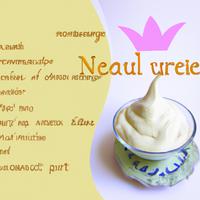
1 serving (15 grams) contains 30 calories, 0.0 grams of protein, 3.0 grams of fat, and 1.0 grams of carbohydrates.

Log this food in SnapCalorie

Nutrition Information
Calories |
473.2 | ||
|---|---|---|---|
% Daily Value* |
|||
| Total Fat | 47.3 g | 60% | |
| Saturated Fat | 31.5 g | 157% | |
| Polyunsaturated Fat | 0 g | ||
| Cholesterol | 0 mg | 0% | |
| Sodium | 78.9 mg | 3% | |
| Total Carbohydrates | 15.8 g | 5% | |
| Dietary Fiber | 0 g | 0% | |
| Sugars | 0 g | ||
| protein | 0 g | 0% | |
| Vitamin D | 0 mcg | 0% | |
| Calcium | 0 mg | 0% | |
| Iron | 0 mg | 0% | |
| Potassium | 0 mg | 0% | |
* Percent Daily Values are based on a 2,000 calorie diet. Your daily values may be higher or lower depending on your calorie needs.
Food Attributes
Source of Calories
About Non dairy cream
Non-dairy cream is a plant-based alternative to traditional dairy cream, often crafted from ingredients like coconut milk, almond milk, soy milk, or oats. Its primary purpose is to replicate the creamy texture and richness of dairy cream, making it suitable for vegan diets or those with lactose intolerance. Non-dairy creams are used in various cuisines, particularly in vegan and Asian dishes, and are popular in beverages, desserts, and sauces. Many varieties are low in saturated fat and free of cholesterol, making them a heart-healthy option compared to heavy cream. However, some processed versions may contain additives, thickeners, or added sugars, so it's essential to read labels. Rich in plant-based fats and often fortified with vitamins, non-dairy cream offers a versatile and inclusive way to enjoy creamy textures while catering to dietary restrictions.



